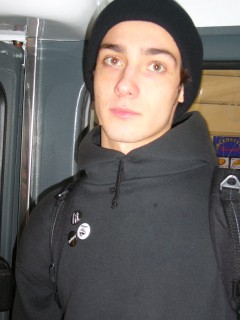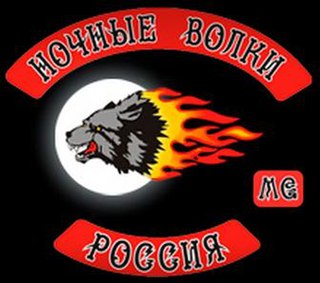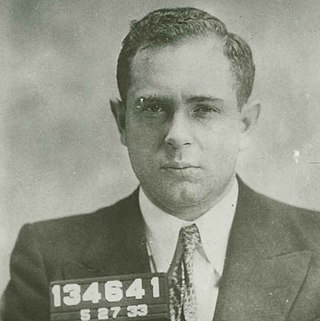The Russian mafia, otherwise referred to as Bratva, is a collective of various organized crime elements originating in the former Soviet Union (FSU). Any of the mafia's groups may be referred to as an "Organized Criminal Group" (OPG). This is sometimes modified to include a specific name, such as the Orekhovskaya OPG. The "P" in the initialism comes from the Russian word for criminal: prestupnaya. Sometimes, the Russian word is dropped in favour of a full translation, and OCG is used instead of OPG.

The Beslan school siege was a terrorist attack that started on 1 September 2004, lasted three days, involved the imprisonment of more than 1,100 people as hostages and ended with the deaths of 333 people, 186 of them children, as well as 31 of the attackers. It is considered to be the deadliest school shooting in history.

The Mahmudiyah rape and killings were a series of war crimes committed by five United States Army soldiers during the U.S. occupation of Iraq, involving the gang-rape and murder of 14-year-old Iraqi girl Abeer Qassim Hamza al-Janabi and the murder of her family on March 12, 2006. It occurred in the family's house to the southwest of Yusufiyah, a village to the west of the town of Al-Mahmudiyah, Iraq. Other members of al-Janabi's family murdered by American soldiers included her 34-year-old mother Fakhriyah Taha Muhasen, 45-year-old father Qassim Hamza Raheem, and 6-year-old sister Hadeel Qassim Hamza al-Janabi. The two remaining survivors of the family, 9-year-old brother Ahmed and 11-year-old brother Mohammed, were at school during the massacre and orphaned by the event.
Human rights violations were committed by the warring sides during the second war in Chechnya. Both Russian officials and Chechen rebels have been regularly and repeatedly accused of committing war crimes including kidnapping, torture, murder, hostage taking, looting, rape, decapitation, and assorted other breaches of the law of war. International and humanitarian organizations, including the Council of Europe and Amnesty International, have criticized both sides of the conflict for blatant and sustained violations of international humanitarian law.

Barry Byron Mills was an American Gangster and leader of the Aryan Brotherhood (AB) prison gang. Nicknamed "The Baron", Mills was incarcerated in the California state prison system at a young age, where he rose within the AB organization during the 1970s and 80s.

Timur Kacharava was a Russian university student, punk musician and anti-fascist activist of Georgian origin. He was murdered at the age of 20 by members of a far right nationalist group in St. Petersburg.

La Línea is currently the leading faction of the Juárez Cartel originally designed to be one of the cartel's enforcer units set up by a number of former and active-duty policemen, heavily armed and extensively trained in urban warfare. Their corrupt "line" of policemen were set up to protect drug traffickers, but after forming an alliance with Barrio Azteca to fight off the forces of the Sinaloa Cartel in 2008, they established a foothold in Ciudad Juárez as the enforcement wing of the Juárez cartel. La Línea has also been involved in extortions and kidnappings. As of 2021, La Línea has formed an alliance with the Jalisco New Generation Cartel in Ciudad Juárez to fight off influence and incursions from the Sinaloa Cartel.
Barrio Azteca, or Los Aztecas, is a Mexican-American street and prison gang originally based in El Paso, Texas, USA and Ciudad Juarez, Chihuahua, Mexico. The gang was formed in the Coffield Unit, located near Tennessee Colony, Texas by Jose "Raulio" Rivera, a prisoner from El Paso, in the early 1980s. It expanded into a transnational criminal organization that traded mainly across the US-Mexico border. Currently one of the most violent gangs in the United States, they are said to have over 3,000 members across the country in locations such as New Mexico, Texas, Massachusetts, and Pennsylvania as well as at least 5,000 members in Ciudad Juarez, Mexico.

The Night Wolves or Night Wolves Motorcycle Club is a Russian motorcycle club that was founded around the Moscow area in 1989. It holds an international status with at least 45 chapters world-wide.
The Villas de Salvárcar massacre occurred in Villas de Salvárcar, Ciudad Juárez on January 31, 2010, early in the morning. 16 young people died. Alejandro Martínez-Cabrera of the El Paso Times stated that the event "brought attention to the city's social problems" and "caused outrage in Mexico because of the brutality". People outside Mexico also expressed outrage about the crime. As a result, the federal government started the program "Todos Somos Juárez" to rejuvenate the city, and President of Mexico Felipe Calderón took additional measures against drug cartels. Lorena Figueroa of the El Paso Times stated that due to the "brutality" of the crime, "The massacre gave notoriety" to Villas de Salvárcar.
The Puccio family was an Argentine criminal family. Three of the Puccios were convicted of four kidnappings and three murders in the early 1980s.
The Ivashevka massacre involved the murder of six members of a family and the critical wounding of a seventh on the night of 24 April 2016 in the village of Ivashevka, Syzransky District, Samara Oblast.
Tadeusz Grzesik is a Polish strawberry grower and serial killer, also known as "Strawberry" and "Killer". He is the leader of a gang which went on to be called the "Moneychangers Gang", or "Gang of Moneychangers Killers".

The Kerch Polytechnic College massacre was a school shooting and bomb attack that occurred in Kerch, Crimea, on 17 October 2018, when 18-year-old student Vladislav Roslyakov killed 20 people and wounded 70 others before committing suicide. It was the deadliest school attack in the former Soviet Union since the 2004 Beslan school siege.

Russian war crimes are the violations of the international criminal law including war crimes, crimes against humanity and the crime of genocide which the official armed and paramilitary forces of the Russian Federation are accused of committing since the dissolution of the Soviet Union in 1991. This accusation also extends to the aiding and abetting of crimes which have been committed by quasi-states or puppet states which are armed and financed by Russia, including the Luhansk People's Republic and the Donetsk People's Republic. These war crimes have included murder, torture, terrorism, deportation or forced transfer, abduction, rape, looting, unlawful confinement, unlawful airstrikes or attacks against civilian objects, and wanton destruction.

Philip "Little Farvel" Cohen alias Jack Kofsky was a figure from organized crime in New York in the 1930s, now considered a member of the so called Kosher Nostra. According to the authorities, Cohen, a former rackets collector, was a member of the criminal organization Murder, Inc., led by Louis Buchalter and, like the gang leader and other members of the organization, was involved in international drug trafficking.

Since the beginning of the Russian invasion of Ukraine in 2022, the Russian military and authorities have committed many deliberate attacks against civilian targets, massacres of civilians, torture and rape of women and children, torture and mutilitation of Ukrainian prisoners of war, and indiscriminate attacks in densely populated areas.









